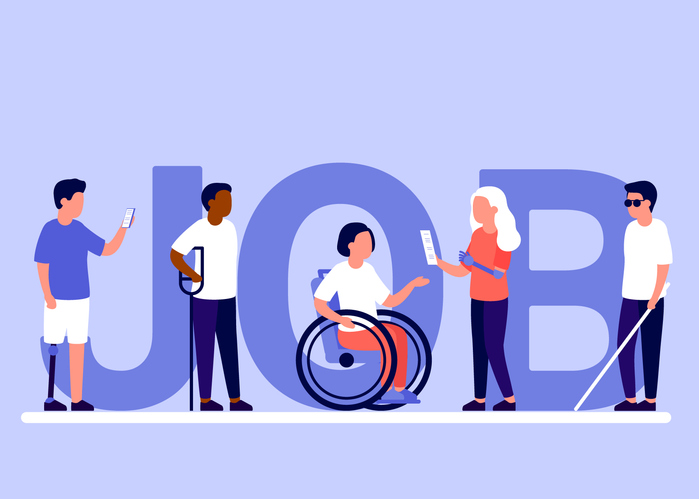Appealing a Social Security Disability Decision
If your initial SSDI claim was denied, you’re not alone. According to the Social Security Administration’s own data, the average approval rate for initial SSDI claims is just 21 percent. This means denials are common, but they don’t have to be the end of the line. The SSA allows you to appeal its decisions, and many people find success during the appeals process.
Filing an appeal gives you another chance to present your case and provide additional or corrected information. It allows you to address any issues or misunderstandings that might have led to the denial. You might need to revise parts of your application, submit additional medical evidence, or clarify details about your condition and how it affects your ability to work.
Hiring a lawyer can significantly improve your chances of success on appeal. An experienced SSDI attorney understands the appeals process and knows how to gather the necessary documentation and evidence. They can handle each step of the appeals process, meeting all the required deadlines and following the proper procedures. With a lawyer’s help, you can build a stronger case and increase your chances of getting the necessary benefits.

Initial Determination
The initial determination for your SSDI application is the first decision the SSA makes regarding your claim. After submitting your application to your local SSA field office, the field office verifies your nonmedical eligibility requirements, such as age, employment history, marital status, and Social Security coverage. Once they complete this verification, they send your case to a state Disability Determination Services (DDS) agency for a medical evaluation.
Next, the DDS office gathers medical evidence to determine whether you are legally disabled or blind. They start by examining evidence from the medical sources you submitted with your application. If this evidence is insufficient, DDS might arrange a consultative examination (CE), preferably with your own provider. However, DDS might ask you to visit an independent provider for the CE if necessary.
After collecting all necessary evidence, DDS staff make the initial determination and return your case to the SSA field office. If they find you disabled, the SSA will complete any remaining non-disability reviews, calculate your benefit amount, and begin payments. If they do not find you disabled, your file stays at the field office in case you decide to appeal the decision.
Eligibility for SSDI
You must meet several criteria to qualify for SSDI benefits. First, you must have worked in jobs covered by Social Security, meaning you paid Social Security taxes on your income. Working and paying Social Security taxes earns you work credits. Work credits are based on your total yearly wages or self-employment income. As of 2024, you earn one work credit for every $1,730 in wages or self-employment income, up to a maximum of four credits per year.
The number of work credits you need to qualify for disability benefits depends on your age when your disability begins. Generally, you need 40 credits, 20 of which were earned in the last ten years before your disability began. However, younger workers sometimes qualify with fewer credits. This means that even if you are younger and haven’t had as many working years, you could still be eligible for SSDI if you have earned sufficient credits relative to your age.
Second, you must have a medical condition that meets Social Security’s strict definition of disability. SSDI benefits are only for total disabilities, not partial or short-term disabilities. To be considered disabled under Social Security’s rules, your condition must prevent you from performing substantial gainful activity (SGA). This means you cannot earn more than $1,550 per month in 2024 ($2,590 if you’re blind).
Your condition must be severe enough to significantly limit your ability to perform basic work-related activities, such as lifting, standing, walking, sitting, or remembering, for at least 12 months. Your condition must also prevent you from doing any work you did previously and from adjusting to any other job. Additionally, you must have a condition expected to last at least one year or result in death.
Amount of SSDI Payment
The amount of SSDI payments you can receive varies based on your average lifetime earnings before your disability began. By law, federal benefits increase when the cost of living rises per measurements by the Department of Labor’s Consumer Price Index for Urban Wage Earners and Clerical Workers. The most recent cost-of-living adjustment (COLA) in January 2024 increased all Social Security benefits by 3.2 percent. For example, the average monthly benefit for all disabled workers rose from $1,489 to $1,537. For disabled workers with spouses and one or more children, the average monthly benefit increased from $2,636 to $2,720.
Overpayment for SSDI
An overpayment occurs when you receive more money in SSDI benefits than you should for a particular month. The overpayment amount is the difference between the amount you received and the amount you are due.
Several factors can cause an overpayment, such as if:
- You earn more income than you estimated
- You experience a change in your living or marital status
- You have more resources than the allowable limit
- You are no longer disabled but continue to receive benefits
- You do not report changes to the SSA on time
- The SSA incorrectly calculates your benefits due to incomplete or incorrect information
If an overpayment occurs, you and your representative payee (if you have one) will receive a notice by mail explaining the overpayment, your repayment options, and your appeal and waiver rights. The SSA will expect a full refund within 30 days. However, they will wait at least 35 days (including mail days) before starting collection.
If you agree that the overpayment has occurred, you have several repayment options. The SSA can withhold 10 percent of your monthly benefit until the repayment is complete. If you cannot afford to pay this amount, you can request a lower withholding rate, but no less than $10 per month. If you do not receive benefits or become delinquent in repayment, the SSA can recover the overpayment from your federal income tax refund, wages, or future Social Security benefits.
If you disagree with the overpayment, you can appeal by filing a request for reconsideration within 60 days of receiving the notice. You can also file a request for a waiver if the overpayment wasn’t your fault and repaying it would cause financial hardship. There is no time limit for requesting a waiver if both of these factors are true. The SSA might ask for proof of your income and expenses while considering your request but will stop collection until they make a decision.

Understanding Reasons for SSDI Claim Denials
Understanding why your SSDI application might be denied can help you avoid common pitfalls and strengthen your claim. Several factors frequently lead to denials. Below are some of the most common reasons why the SSA denies SSDI applications.
Insufficient Medical Evidence
Insufficient medical evidence is one of the most common reasons why the SSA denies applications. If your medical records do not clearly show the severity of your condition or how it prevents you from working, the SSA might determine that you are not disabled. This is why it’s so important to provide comprehensive medical documentation, including detailed reports from your doctors, test results, and treatment histories. Detailed notes from your healthcare providers about how your condition limits your daily activities and ability to work can also make a significant difference. Missing or vague information might lead the SSA to believe your disability is not as severe as you claim or that you are not disabled at all, which could result in a denial.
Failure to Follow Treatment Plans
The SSA might deny your application if evidence suggests you have not been following your healthcare provider’s prescribed treatment plans. This is because the SSA expects you to comply with your doctor’s recommendations to manage your condition. If you fail to do so without a valid reason, such as severe side effects or an inability to afford treatment, the SSA might conclude that your condition is not as severe as you claim. Providing a clear explanation for any deviations from your treatment plan can prevent this issue from affecting your application. It’s essential to communicate any challenges you face in following your treatment plan with your healthcare provider and document these discussions for your SSDI application.
Nonmedical Reasons
Sometimes, the SSA might deny your application for nonmedical reasons, such as not meeting the work credit requirements or earning too much income. SSDI benefits are intended for individuals who have paid Social Security taxes during their working years and cannot perform substantial gainful activity (SGA). If your income exceeds the SGA limit, the SSA will deny your claim regardless of your medical condition. Additionally, if you haven’t earned enough work credits through Social Security-covered employment, you won’t qualify for SSDI benefits. Ensuring that you meet the nonmedical criteria, like sufficient work history and income limits, is essential for a successful SSDI application.
Inconsistent Statements
Inconsistent statements in your application or during medical evaluations could also lead to an SSDI application denial. The SSA could question your credibility if your description of your symptoms and limitations varies between different documents or interviews. Consistency in your statements about your condition, its impact on your daily life, and your work limitations is critical. Discrepancies between your self-reported symptoms and what your medical records indicate could raise red flags. It’s a good idea to keep a detailed journal of your symptoms and limitations to ensure you provide consistent information throughout the application process. Consistency will create a stronger case for your disability claim.
Administrative Errors
Sometimes, administrative errors result in denials. These errors can include lost or missing paperwork, incorrect information in your file, or misunderstandings about your condition. If you suspect an administrative error led to your denial, you should review your file and address any discrepancies during the appeal process. Keeping copies of all your application materials and correspondence with the SSA can allow you to identify and correct these errors. Promptly addressing any administrative mistakes can prevent delays and improve your chances of a successful appeal. Don’t hesitate to follow up with the SSA to ensure all your information is accurate and complete.
The Four Appeal Levels
If the SSA denies your SSDI application, you have the right to appeal the decision. The appeals process, which involves four distinct phases, allows you to challenge the denial and provide additional evidence to support your claim. By appealing, you give your case another chance for review, which can significantly increase your chances of approval. It is crucial to act quickly, as there are strict deadlines for filing an appeal at each stage of the process. An experienced disability attorney can manage the appeals process, gather the necessary documentation, and present a strong case on your behalf to improve your likelihood of receiving benefits.
Reconsideration
Reconsideration is the first level of appeal if the SSA denies your initial application. This phase of the appeals process allows you to address the reasons for the denial and strengthen your claim with additional medical records, doctor’s statements, or other relevant documentation.
To begin the reconsideration process, you must submit a request within 60 days of receiving the denial notice. It’s essential to be thorough and precise in presenting your condition and how it prevents you from working. During reconsideration, a new examiner will review your case, including any new evidence you provide. The new examiner will not have been involved in the original decision, so they can offer a fresh perspective on your case.
While the approval rate for the reconsideration stage is still low, submitting detailed and accurate information can improve your chances of success. A disability attorney can help you handle this process effectively by including and presenting all necessary application evidence in the most favorable light.
Hearing by an Administrative Law Judge
If the SSA denies your reconsideration request, the next level of appeal is a hearing by an administrative law judge (ALJ). At this stage, you can present your case in person, which allows for a more detailed and comprehensive review of your disability claim. The hearing provides an opportunity to explain how your condition affects your ability to work and to present new evidence or witnesses, such as medical experts or vocational specialists.
To request an ALJ hearing, you must submit your request within 60 days of receiving the denial from the reconsideration stage. The hearing typically takes place within 75 miles of your home. If your request is approved, you will receive a notice with the date, time, and location of the hearing. During the hearing, the ALJ will ask you questions about your condition, daily activities, and past work. They might also question your witnesses, if you have any, to establish a better understanding of your condition.
The ALJ hearing is a critical part of the appeals process because it allows you to present your case in a more personal and detailed manner. Having a disability attorney represent you can be highly beneficial, as they can help you prepare for the hearing, gather supporting evidence, and effectively present your case to the judge.
Review by the Appeals Council
If the administrative law judge denies your claim following a hearing, you can request a review by the Appeals Council. This is the third level of the SSDI appeals process. The Appeals Council does not re-hear your case. Instead, it reviews the ALJ’s decision to determine if there were any legal errors or if there is substantial evidence supporting the decision.
To request a review, you must submit your request within 60 days of receiving the ALJ’s decision. The Appeals Council can deny your request for review if it believes the ALJ’s decision was correct. If the Appeals Council agrees to review your case, it will either make a decision itself or return your case to an ALJ for further review.
During this process, you have the opportunity to submit new evidence and a written statement explaining why you believe the ALJ’s decision was incorrect. This level of appeal can be complex, so working with a disability attorney is essential. They can gather and present new evidence, write persuasive legal arguments, and comply with the complex legal standards that the Appeals Council requires. This step is crucial because it is your last opportunity to resolve your case with the SSA before bringing the matter to a federal court.
Federal Court Review
If the Appeals Council denies your request for review, upholds the ALJ’s decision, or makes another determination with which you disagree, your final option is to file a lawsuit in federal district court. This step marks the fourth and final level of the SSDI appeals process. A federal court review involves presenting your case before an independent judge, who will evaluate the legal aspects of your case rather than re-examining the evidence.
To begin this process, you must file a complaint in federal court within 60 days of receiving the Appeals Council’s decision. The federal judge will review the administrative record, which includes all documents and evidence you presented in earlier stages of the application and appeals processes. The judge will determine whether the SSA made any legal errors or if there is substantial evidence supporting the SSA’s decision. The court can either affirm the SSA’s decision, reverse it, or send the case back to the SSA for further review.
Federal court reviews are highly complex and require a thorough understanding of the relevant laws and court procedures. Having an experienced disability attorney is crucial at this stage. They can prepare legal briefs, present compelling arguments, and handle the intricate legal procedures necessary for federal lawsuits. Although this level of appeal is challenging, it provides one last opportunity to secure the SSDI benefits you need.

Gathering Evidence for Your Appeal
Providing comprehensive and compelling evidence is essential to strengthening your case when appealing an SSDI denial. The evidence you include can significantly impact the outcome of your appeal. Here are some types of evidence you could present for your appeal:
- Medical Records: Detailed medical records from your healthcare providers are essential. These records should include diagnoses, treatment plans, progress notes, test results, and any hospitalizations related to your condition. Comprehensive medical documentation can illustrate the severity and persistence of your disability and clarify how it impacts your ability to work.
- Doctor’s Statements: You can also obtain written statements from your doctors explaining your condition and its impact on your daily life and work capabilities. These statements should detail your symptoms, limitations, prognosis, and how your condition prevents you from performing substantial gainful activity. A doctor’s professional opinion can carry significant weight in your appeal.
- Specialist Evaluations: Reports from specialists who have treated or evaluated your condition can provide valuable evidence. Specialists can offer detailed insights and expert opinions on the nature and severity of your disability. Their evaluations can support your claim by providing context and validating your primary doctor’s findings.
- Treatment History: A detailed history of all treatments you have received for your condition can also provide useful supporting evidence. This might include records of medications, therapies, surgeries, and other interventions. Documenting your treatment history shows that you have actively sought to manage your condition, which can demonstrate the persistence and severity of your disability.
- Functional Capacity Evaluations: A functional capacity evaluation (FCE) conducted by a physical or occupational therapist can provide objective evidence of your physical limitations. These evaluations assess your ability to perform work-related tasks, such as lifting, standing, walking, and sitting. This information helps the SSA understand the practical impact of your disability on your ability to work.
- Work History and Performance Reports: Documentation of your work history and any performance reports from employers can be valuable, too. This evidence can show how your condition has affected your job performance and led to decreased productivity or an inability to maintain employment. Statements from former employers can also support your claim by detailing how your disability impacted your work.
- Daily Living Activities Statements: Written statements about how your disability affects your daily living activities can provide a personal perspective on your limitations. You can provide these statements, or they can come from family members, friends, or caregivers who observe your struggles. Detailed descriptions of your difficulties with routine tasks, such as personal care, household chores, and mobility, can paint a comprehensive picture of your disability.
How Long Appeals Take in Florida

The duration of SSDI appeals in Florida varies depending on several factors, including the level of appeal and the complexity of your case. Initially, the reconsideration phase can take about three to six months. If the SSA denies your reconsideration, you can request a hearing before an Administrative Law Judge (ALJ), which often involves the longest wait. In Florida, it can take several months to more than a year from the request date to receive a hearing date due to a high volume of cases and a limited number of judges.
After the hearing, the ALJ usually takes a few months to issue a decision. If you proceed to the Appeals Council review, this stage can add another six months to a year. If your case goes to federal court, the process can extend by another year or more. Overall, the entire SSDI appeals process can span several months to a few years. Working with an experienced disability attorney is the best way to handle the process efficiently and reduce delays.
Odds of Winning an Appeal
Your odds of winning an SSDI appeal vary depending on several factors, including the stage of the appeal and the quality of the evidence you present. Your chances of success dramatically improve when you work with an experienced disability lawyer. An attorney can gather compelling medical evidence, prepare you for hearings, and present your case effectively to increase your odds of winning. They understand the legal standards and procedural requirements necessary for a successful case, which can make a substantial difference in the outcome of your appeal. While the appeals process can be challenging, persistence and thorough preparation can enhance your chances of winning and securing the benefits you need.

Presenting a Strong Case With an Experienced Attorney
A disability lawyer can significantly increase your chances of success during the SSDI appeals process. These legal professionals understand the complexities of the system and can provide valuable assistance at every stage of your appeal. Here are some key ways a disability lawyer can help you with your SSDI appeal:
- Identifying Potential Issues: Your lawyer can identify any weaknesses in your initial application or previous appeals and address them. They can advise you on additional evidence or documentation that might be necessary and correct any inconsistencies or errors in your records. This proactive approach can prevent further denials.
- Gathering Comprehensive Medical Evidence: A disability lawyer can collect and organize all the necessary medical records and documentation to support your claim. They know what specific information the SSA looks for and can ensure that your medical evidence demonstrates the severity and impact of your condition on your ability to work.
- Preparing Legal Briefs and Documents: Your lawyer can draft and submit all required legal briefs and documents for your appeal. They can write detailed statements explaining why you qualify for benefits, addressing any issues raised in the initial denial, and highlighting the key points of your medical evidence.
- Communicating with the SSA: Your lawyer can handle all communications with the SSA on your behalf. This includes submitting documents, responding to requests for information, and following up on the status of your appeal. Effective communication with the SSA ensures that your case progresses smoothly and meets all requirements.
- Representing You at Hearings: If your case goes before an ALJ, your lawyer can represent you during the hearing and present your case clearly and effectively. They can question witnesses, respond to inquiries, and argue on your behalf. Professional representation can make a significant difference in the outcome of your hearing.
- Providing Guidance and Support: The SSDI appeals process can be overwhelming. A disability lawyer can provide valuable guidance and support throughout the entire process. They can explain each step, keep track of deadlines, and ensure that you understand your rights and options, significantly reducing stress and confusion.
Contact a Florida SSDI Appeals Lawyer Now
If your SSDI application has been denied in Florida, don’t lose hope. The Disability Advocates Group Florida can support you through every stage of the appeals process. Contact us today for a free initial consultation, and take the first step toward securing your rightful SSDI benefits.
Below is a list of SSA Hearing Office locations in Florida, the contact information for each Hearing Office, and the Social Security field offices each one serves.
Fort Lauderdale Hearing Office
Address: Suite 200, 300 S. Park Rd, Hollywood, FL 33021-8353
Phone Number: (888) 436-2637
Services: Belle Glade, Delray Beach, Ft. Lauderdale (East & West), Melbourne, North Broward, Pembroke Pines, Port St. Lucie, South Broward, Sunrise, Vero Beach, W. Palm Beach
Fort Myers Hearing Office
Address: 2nd Floor, Suite 210, 3650 Colonial Boulevard, Ft. Myers, FL 33966
Phone Number: (888) 462-1109
Services: Ft. Myers, Naples, Port Charlotte
Jacksonville Hearing Office
Address: Building 400, Suite 400, 8880 Freedom Crossing Trail, Jacksonville, FL 32256
Phone Number: (866) 931-0124
Services: Deland, Gainesville, Jacksonville (North & South), Lake City, Port Orange, St. Augustine
Miami Hearing Office
Address: One Riverview Square, 8th Floor, 333 S. Miami Avenue, Miami, FL 33130
Phone Number: (866) 964-5052
Services: Allapattah, Hialeah, Key West, Little Havana, Little River, Miami Beach, Miami (North & South), Perrine, Jackson Mem Site
Orlando Hearing Office
Address: Glenridge Building, Suite 300, 3505 Lake Lynda Drive, Orlando, FL 32817-8338
Phone Number: (877) 833-2730
Services: Cocoa, Cocoa Beach, Kissimmee, Lake Mary, Leesburg, Ocala, Orlando, Titusville
Port Orange Satellite Office
Address: 4990 Clyde Morris Blvd., Port Orange, FL 32127
Phone Number: (866) 931-0124
Services: Deland, Port Orange
St. Petersburg Hearing Office
Address: 2nd Floor, 830 Central Avenue, St. Petersburg, FL 33701
Phone Number: (877) 452-4193
Services: Bradenton, Clearwater, New Port Richey, Sarasota, St. Petersburg, Venice
Tallahassee Hearing Office
Address: 2nd Floor, 1961 Quail Grove Lane, Tallahassee, FL 32311
Phone Number: (888) 472-5996
Services: Marianna, Panama City, Tallahassee
Tampa Hearing Office
Address: Fountain Square II, Suite 200, 4925 Independence Parkway, Tampa, FL 33634
Phone Number: (855) 248-0239
Services: Carrollwood, Dade City, Lakeland, Sebring, Tampa, Valrico, Winter Haven
